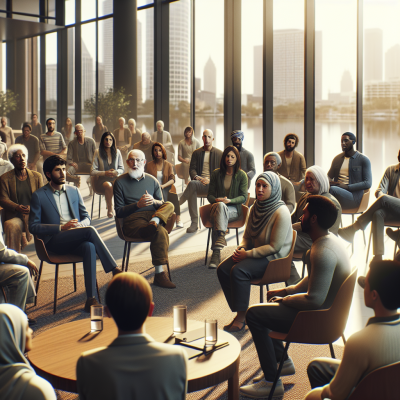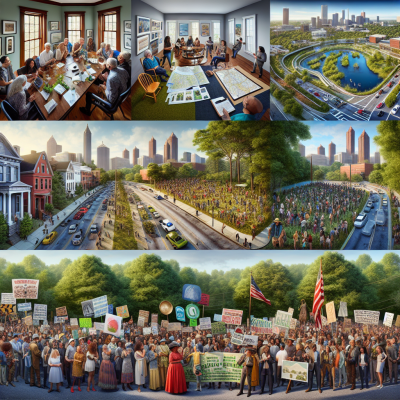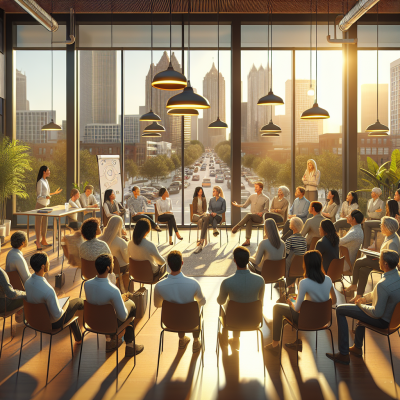
Community Groups in Atlanta: A Comprehensive Guide for Visitors and Locals
Overview of Atlanta's Community Landscape
Demographic and Cultural Diversity
Atlanta, often referred to as the City in a Forest, is a vibrant metropolis characterized by its rich tapestry of demographic and cultural diversity. As one of the fastest-growing cities in the United States, Atlanta attracts a wide array of residents and visitors alike, each contributing to the city's unique cultural milieu. The African American community plays a particularly influential role, with Atlanta often seen as a cultural and economic hub for Black America. The presence of historically Black colleges and universities (HBCUs) such as Morehouse and Spelman contributes to this vibrant cultural landscape.
Atlanta's diversity extends beyond its African American community, with significant Latino, Asian, and immigrant populations enriching the city's cultural fabric. Neighborhoods like Buford Highway are renowned for their extensive array of ethnic eateries and multicultural shops, offering a slice of the globe right in the heart of Georgia. These multicultural communities not only enhance the city's vibrancy but also foster a strong sense of identity and belonging for their members.
The Role of Community Groups in Urban Development
Community groups in Atlanta are vital actors in urban development and play a crucial role in shaping the city's evolution. These groups advocate for various issues, such as affordable housing, sustainable development, and equitable access to resources. Their efforts help ensure that development projects and policies are inclusive and reflective of the diverse needs of Atlanta's rapidly changing population.
Neighborhood associations, for instance, work to preserve the character and quality of life in their communities, providing a platform for residents to voice concerns and influence planning decisions. Similarly, environmental advocacy groups push for green spaces and sustainable urban planning, tackling issues such as pollution and climate change.
Furthermore, cultural and ethnic organizations provide essential services such as language assistance, legal aid, and cultural preservation, contributing to the stability and prosperity of Atlanta's diverse populations. These groups are instrumental in helping immigrants and marginalized communities integrate into the broader societal framework, thereby supporting the city's inclusive growth.
Historical Context of Community Activism
Atlanta boasts a storied history of community activism with roots deeply embedded in the American civil rights movement. Known as the Cradle of the Civil Rights Movement, Atlanta was home to iconic figures such as Martin Luther King Jr. and served as the base for organizations like the Southern Christian Leadership Conference (SCLC). This legacy of activism laid a strong foundation for continued community engagement and social justice efforts in the city.
In the decades following the civil rights era, Atlanta's community groups have continued to champion causes ranging from voting rights and education reform to affordable housing and health care access. These groups draw inspiration from their historical predecessors, maintaining a spirit of resilience and advocacy in the face of modern challenges. Initiatives like the Atlanta BeltLine project showcase how community activism has evolved, blending historical advocacy with contemporary urban development goals.
In recent years, the rise in social awareness and mobilization against systemic inequalities has reignited activism in Atlanta, bringing together diverse coalitions to address pressing issues such as racial justice, income inequality, and police reform. Through organized protests, grassroots campaigns, and policy advocacy, Atlanta's community groups continue to play a transformative role in shaping the city's social and political landscape.






